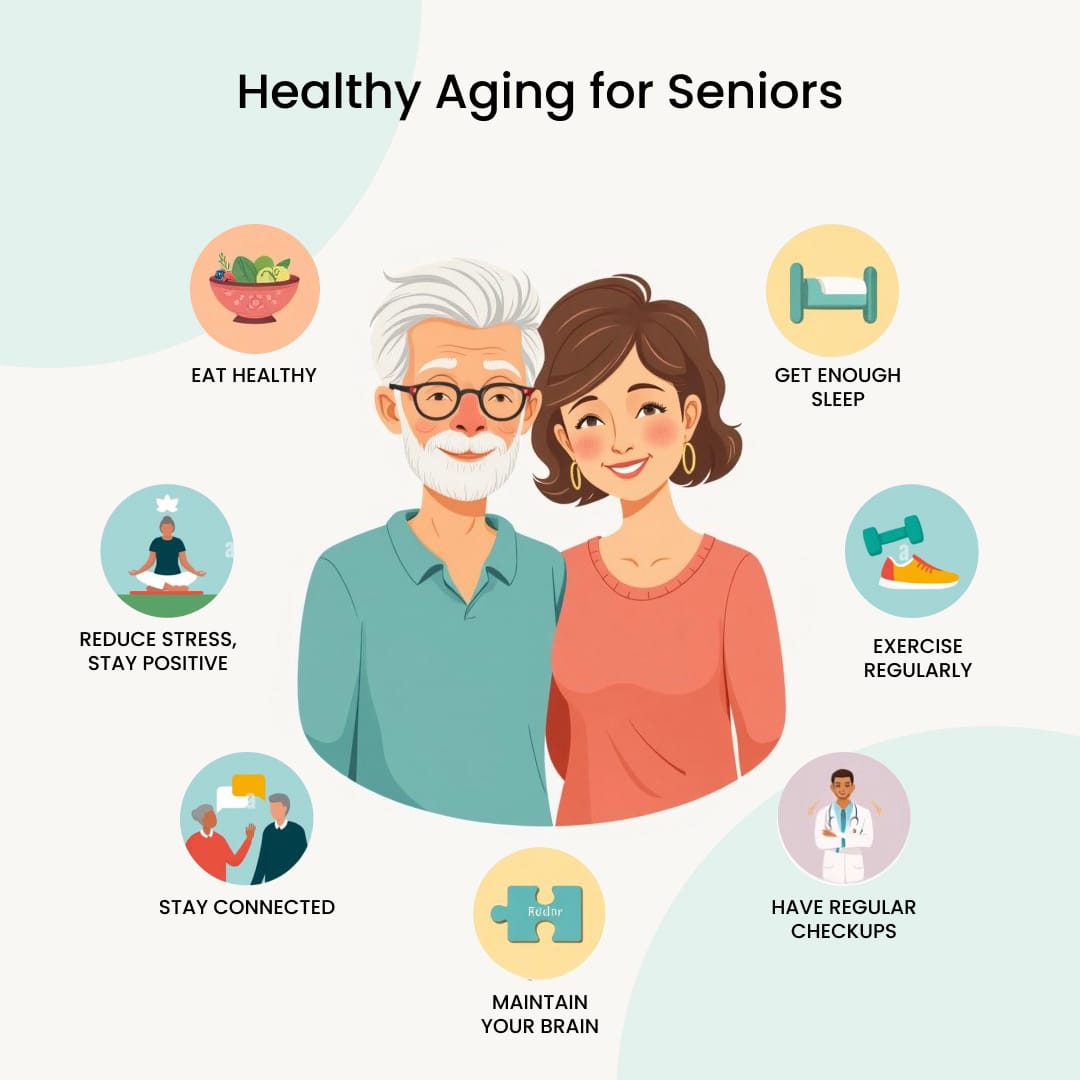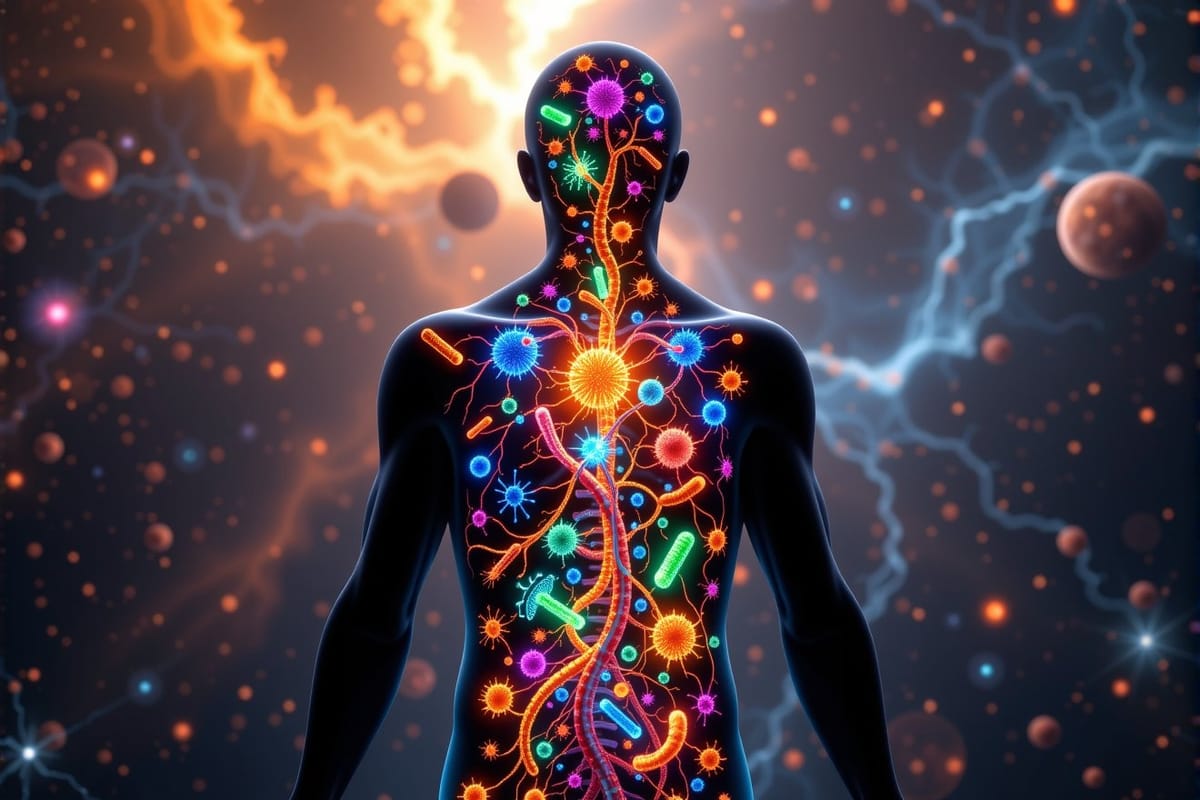Age-Defying Breakthroughs: The Future of Managing Age-Related Diseases
The aging process often brings along a slew of health challenges. From cognitive decline to arthritis, heart disease, and more, age-related diseases are becoming an increasing concern as the global population ages. But the good news is that science and medicine are making significant strides in combating these diseases. Thanks to groundbreaking research, the future of age-related disease management is looking brighter than ever before. Let’s dive into the latest breakthroughs that could change the game for older adults.
The Brain: Unlocking New Frontiers in Alzheimer’s and Dementia Treatment
Alzheimer’s disease and other forms of dementia have long been a source of heartbreak for patients and families alike. But researchers are now on the brink of discovering new treatments that could slow, halt, or even reverse the progression of these debilitating conditions. One of the most exciting developments comes from the field of gene therapy.
A recent study at the University of California demonstrated the potential of using gene editing technology, like CRISPR, to target and correct mutations in genes associated with Alzheimer’s. By modifying the genes responsible for amyloid plaque buildup in the brain—one of the hallmarks of Alzheimer’s disease—this method could potentially offer a long-term solution for slowing down the disease’s progression.
Additionally, new drug treatments are showing promise. The FDA recently approved a drug called Leqembi, which targets amyloid plaques and has been shown to slow cognitive decline in early-stage Alzheimer's patients. While it’s still early, this drug is making waves in the scientific community as a potential game-changer in Alzheimer's management.
Reversing the Effects of Aging on the Body: Advancements in Regenerative Medicine
While the brain is a major focus, the body itself is not immune to the ravages of aging. Age-related diseases such as osteoarthritis, osteoporosis, and cardiovascular diseases often result in debilitating pain and reduced mobility. But what if we could regenerate lost tissues and repair damaged organs?
Regenerative medicine is providing hope for aging individuals by leveraging stem cells and tissue engineering to repair or replace damaged tissues. One example is the use of stem cells to treat osteoarthritis. Research from the Mayo Clinic has shown that stem cell injections can help regenerate cartilage in joints, providing long-term relief from pain and stiffness.
Another exciting advancement comes from the use of 3D printing technology to create tissue and organ models. In the future, we could potentially 3D print replacement organs or tissues for individuals suffering from age-related diseases, reducing the need for organ donors and increasing the lifespan and quality of life.
The Heart: Cutting-Edge Innovations in Cardiovascular Care
As we age, the risk of heart disease increases. However, recent breakthroughs in cardiovascular medicine are giving hope to millions of people living with age-related heart conditions. One of the most promising innovations is the development of heart tissue engineered from stem cells.Researchers at the University of Tokyo have successfully developed lab-grown heart muscle cells that can be used to repair damaged hearts.
These cells can be injected directly into a patient's heart, potentially reversing the damage caused by a heart attack or chronic heart disease. This breakthrough could dramatically improve the prognosis for older individuals with heart disease. Additionally, wearable health devices are taking cardiovascular care to the next level.
With the advent of wearable ECG monitors, individuals can now track their heart health in real-time. These devices provide early warnings of potential heart issues, enabling doctors to intervene before a more serious condition develops. This form of proactive care could prevent a significant number of heart-related issues in aging adults.
The Skin: Anti-Aging Skincare Gets a Scientific Upgrade
While many of us focus on the aesthetic side of aging, our skin bears the brunt of the battle with age. Wrinkles, sagging, and thinning skin are all inevitable signs of growing older. However, thanks to advancements in dermatology and skincare technology, managing these changes is becoming much easier.One breakthrough in this area is the development of "senolytic" drugs.
These drugs target and remove senescent cells—cells that have stopped dividing but refuse to die off naturally. As we age, these cells accumulate in our bodies, contributing to inflammation and the signs of aging. By eliminating them, researchers believe we can promote healthier, more youthful-looking skin.Moreover, nanotechnology is making waves in anti-aging skincare.
Tiny nanoparticles are being designed to penetrate deep into the skin layers, delivering active ingredients more effectively. This technology could lead to more efficient treatments for age-related skin issues, such as wrinkles and age spots, helping older adults look and feel their best.

The Future of Aging: Personalized Medicine and AI
One of the most significant breakthroughs in age-related disease management is the rise of personalized medicine. No longer are doctors relying on one-size-fits-all treatments. With advances in genetic testing and AI, medical professionals can now create customized treatment plans based on a patient’s unique genetic makeup, lifestyle, and health history.
AI-powered health apps are also playing a key role in this personalized approach. These apps can track an individual’s activity, diet, and sleep patterns, offering tailored advice to help manage age-related diseases. By analyzing large sets of data, AI can identify patterns and predict future health risks, allowing for early intervention and better disease management.
Conclusion: A New Era of Age-Related Disease Management
The future of age-related disease management is full of promise, thanks to these groundbreaking innovations. From brain health and regenerative medicine to heart care and anti-aging skincare, the scientific community is working tirelessly to ensure that we can live longer, healthier, and more fulfilling lives.
As research continues to progress, these breakthroughs will undoubtedly redefine what it means to grow old, bringing hope and improved quality of life to aging individuals worldwide. So, keep an eye on these exciting developments – the future of aging is brighter than ever before!







Comments